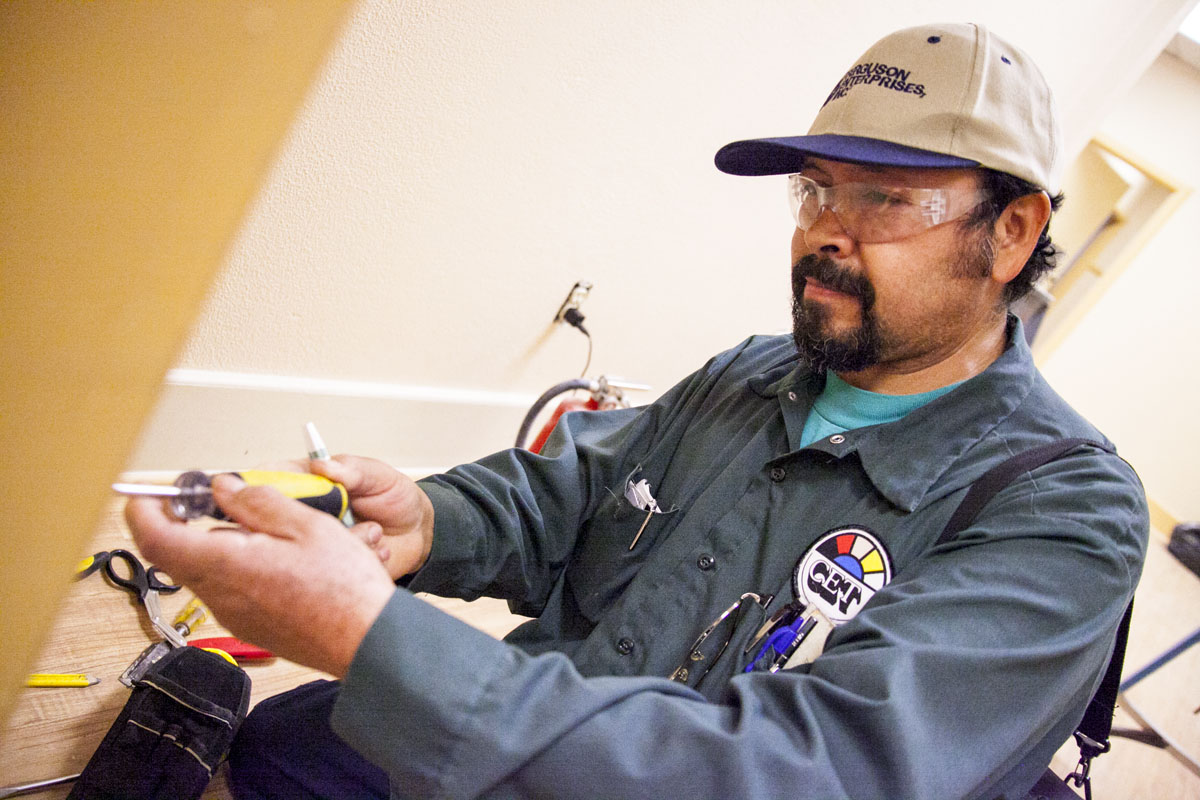Why 1-2 Years of College Makes More Sense Than 4
Many people who grew up in the 80s, 90s or early 2000s remember that they were strongly pushed to attend a four-year college after high school....
3 min read
Center for Employment Training : May 10, 2024 1:20:03 PM

Vocational programs are increasingly becoming popular, with many students opting for instructional trade courses over traditional four-year college degrees. A CBS News report titled "South Bay trade schools see boom in enrollment" reports that many students are questioning the time and expense it takes to obtain a degree from a traditional college.
Aside from the lengthy duration of degree programs, many students rely on federal student aid to pay tuition fees and other expenses. They also have to contend with paying back financial aid or loans after graduating from college once they start earning.
The paradigm educational shift is also a result of the growing demand for skilled trade workers in various sectors and industries. Many employers prefer candidates with practical skills, interpersonal skills, and on-the-job training, making vocational training an appealing option for students. Students can also turn to self-employment for a fulfilling and rewarding career in their area of specialization.
Vocational programs are specialized educational courses offered by trade schools and technical educational institutions. These trade courses focus on imparting specific skills and extensive knowledge to prepare students to pursue particular trades or careers after completing training.
Trade schools are certified educational institutions that offer specialized, industry-relevant training to students who want to pursue various professions. The schools offer programs and a practical curriculum that equip students with the skills and experience they need to enter the job market. The courses offered provide hands-on, practical training for real-world applications. They cover different industries and occupations, from business and healthcare to construction and technical trades, among many others.
Enrolling in a technical school comes with numerous benefits. Unlike a four-year college program, trade school training is short-term. It doesn't take more than two years to complete your educational journey. Trade courses are also affordable compared to associate degree programs offered in community colleges.
Moreover, most trade schools have flexible timetables, allowing students to attend evening or weekend classes. For instance, online trade schools offer flexible schedules and are ideal for trade school students who are already working but want specialized training or to pursue further education.
Since vocational schools offer formal training and industry-recognized certifications, graduates can compete in the job market with their community college counterparts. As the demand for trade workers grows, trade school graduates have a competitive edge over associate degree holders. Many trade schools also provide trusted partner programs from various industries and local businesses, making it easier for graduates to enter the workforce.
The CBS News report highlighted the boom in enrollment at technical schools. This is mainly driven by the rising costs of college education, the lengthy duration it takes to complete an undergraduate degree, and the strong demand for skilled trade workers.
According to the report, construction trade courses are in high demand, with enrollment shooting by over 19% between 2021 and 2022. Technical trades are also popular, with many students enrolling in courses like low-voltage electrical applications and residential & general electrician programs.
Students interviewed in the CBS News report paint a positive picture about vocational programs. Diego Silva, a trade school student, questioned the time and expenses it would take to get a community college degree. According to him, it doesn't make sense to get a better job with a degree but remain in a debt cycle. Silva opted to enroll in a vocational school to pursue a low-voltage electrical program. These courses equip students with in-demand skills in wiring homes for electrical systems, ethernet, and fiber optics.
The Center for Employment Training, CET, is an accredited trade school. Since its inception in 1967, the institution has continued to provide job-oriented training, equipping students with technical skills to help them achieve their career goals.
CET has an extensive range of in-demand trade programs that cover various sectors and industries, including business, healthcare, construction, and culinary arts. They also offer technical trade programs, early childhood care & education, and truck driving courses.
The institution has industry partnerships with local businesses and employers, allowing workforce-ready students to land jobs in their area of specialization. CET also offers essential support, including job placement and retention services. Applicants can enroll at any time and start training, thanks to CET's open entry/open exit policy. Moreover, CET has a 10-day trial period, allowing prospective students to try out any trade school program at no cost.
Vocational education was previously considered a lower-tier career path. However, this is no longer the case. With the growing demand for skilled trade workers, this post-secondary education program has emerged as a practical option for students who prefer hands-on training for specific trades and occupations after attaining a high school diploma.
Vocational programs are also more affordable and take a fraction of the time to complete compared to four-year bachelor's degree programs. This makes students more workforce-ready than their college counterparts. Contact us to learn more about our programs.

Many people who grew up in the 80s, 90s or early 2000s remember that they were strongly pushed to attend a four-year college after high school....

The US job market is currently booming. Millions of jobs have been created, and some occupations are expected to keep growing for years to come. You...

Anyone who has ever achieved their dream job can tell you, the satisfaction of success is priceless. The good news is: the jobs can also be very...